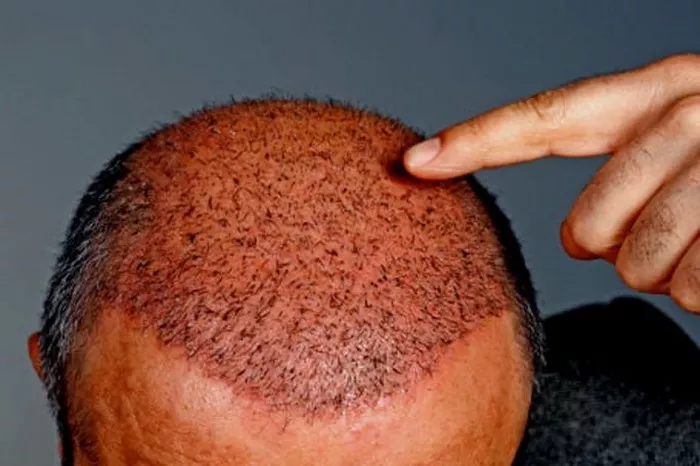Hair loss, medically termed alopecia, is a common concern affecting millions worldwide. While various factors contribute to this condition, including genetics, hormonal changes, and environmental factors, fungal infections are gaining attention as a potential culprit. Fungal infections of the scalp can lead to hair loss, but the crucial question remains: Is hair loss due to fungal infection reversible? Understanding the mechanisms behind fungal-induced alopecia and exploring treatment options can shed light on this query.
Understanding Fungal-Induced Alopecia
Fungal infections of the scalp, commonly known as tinea capitis or scalp ringworm, are primarily caused by dermatophytes, fungi that thrive on keratinized tissues like hair, skin, and nails. These infections often manifest as red, scaly patches on the scalp, accompanied by itching, tenderness, and hair breakage. The fungi invade the hair shaft, weakening it and causing it to break off at the surface, leading to visible hair loss.
The presence of fungal elements on the scalp triggers an inflammatory response, further exacerbating hair loss. In severe cases, follicular destruction may occur, hindering hair regrowth. The extent of hair loss and the effectiveness of treatment depend on various factors, including the type of fungus involved, the duration of infection, and individual susceptibility.
Diagnosis and Treatment
Diagnosing fungal-induced alopecia typically involves a thorough clinical examination and, in some cases, laboratory tests such as fungal culture or microscopic examination of hair samples. Prompt and accurate diagnosis is crucial for initiating appropriate treatment and preventing further hair loss.
Treatment of fungal-induced alopecia often involves antifungal medications, either topical or oral, aimed at eradicating the causative fungus. Common antifungal agents include ketoconazole, fluconazole, and griseofulvin. Topical antifungal shampoos or creams may be used to target localized infections, while oral medications are prescribed for more widespread or severe cases.
In addition to antifungal therapy, supportive measures such as maintaining proper scalp hygiene and avoiding sharing personal items like combs and hats can help prevent recurrence and facilitate hair regrowth. In some instances, adjunctive therapies such as corticosteroids or immunomodulators may be prescribed to reduce inflammation and promote healing.
Reversibility of Hair Loss
The reversibility of hair loss due to fungal infection hinges on several factors, including the stage of infection, the effectiveness of treatment, and individual characteristics such as age and overall health. In mild cases where the infection is promptly diagnosed and treated, hair loss may be reversible, and affected individuals can expect regrowth within a few months of initiating therapy.
However, in cases of severe or chronic fungal-induced alopecia, complete reversal of hair loss may be challenging to achieve. Prolonged inflammation and follicular damage can impede the regrowth process, leading to permanent hair loss or scarring alopecia. Early intervention and aggressive treatment are essential to minimize irreversible damage and maximize the chances of successful hair restoration.
Factors Influencing Treatment Outcome
Several factors influence the outcome of treatment for fungal-induced alopecia, including:
1. Type of Fungus: Different fungal species exhibit varying degrees of virulence and susceptibility to antifungal agents. Identifying the specific fungus responsible for the infection guides treatment selection and predicts response to therapy.
2. Duration of Infection: Early detection and treatment are associated with better outcomes in fungal-induced alopecia. Prolonged or untreated infections may lead to extensive hair loss and irreversible damage to hair follicles.
3. Underlying Health Conditions: Individuals with compromised immune systems or preexisting medical conditions may be more susceptible to fungal infections and may experience delayed healing or treatment resistance. Managing underlying health issues is essential for optimizing treatment outcomes.
4. Adherence to Treatment: Strict adherence to prescribed antifungal therapy and follow-up appointments is crucial for successful outcomes. Skipping doses or discontinuing treatment prematurely can lead to treatment failure and recurrence of infection.
5. Scalp Hygiene: Maintaining good scalp hygiene, including regular washing with antifungal shampoos and avoiding factors that exacerbate fungal growth, is essential for preventing reinfection and promoting hair regrowth.
6. Overall Health and Nutrition: Adequate nutrition and overall health play a significant role in hair growth and healing. A balanced diet rich in essential nutrients supports the body’s ability to combat infection and facilitate tissue repair.
Conclusion
Hair loss due to fungal infection can be distressing, but timely diagnosis and appropriate treatment offer hope for reversal and restoration of hair growth. While mild cases of fungal-induced alopecia may resolve with antifungal therapy alone, severe or chronic infections may require a combination of medications and supportive measures to achieve optimal outcomes. Early intervention, diligent adherence to treatment, and addressing underlying health factors are critical for maximizing the chances of successful hair restoration. By understanding the mechanisms underlying fungal-induced alopecia and implementing effective treatment strategies, individuals affected by this condition can regain confidence and enjoy healthy, vibrant hair once again.


